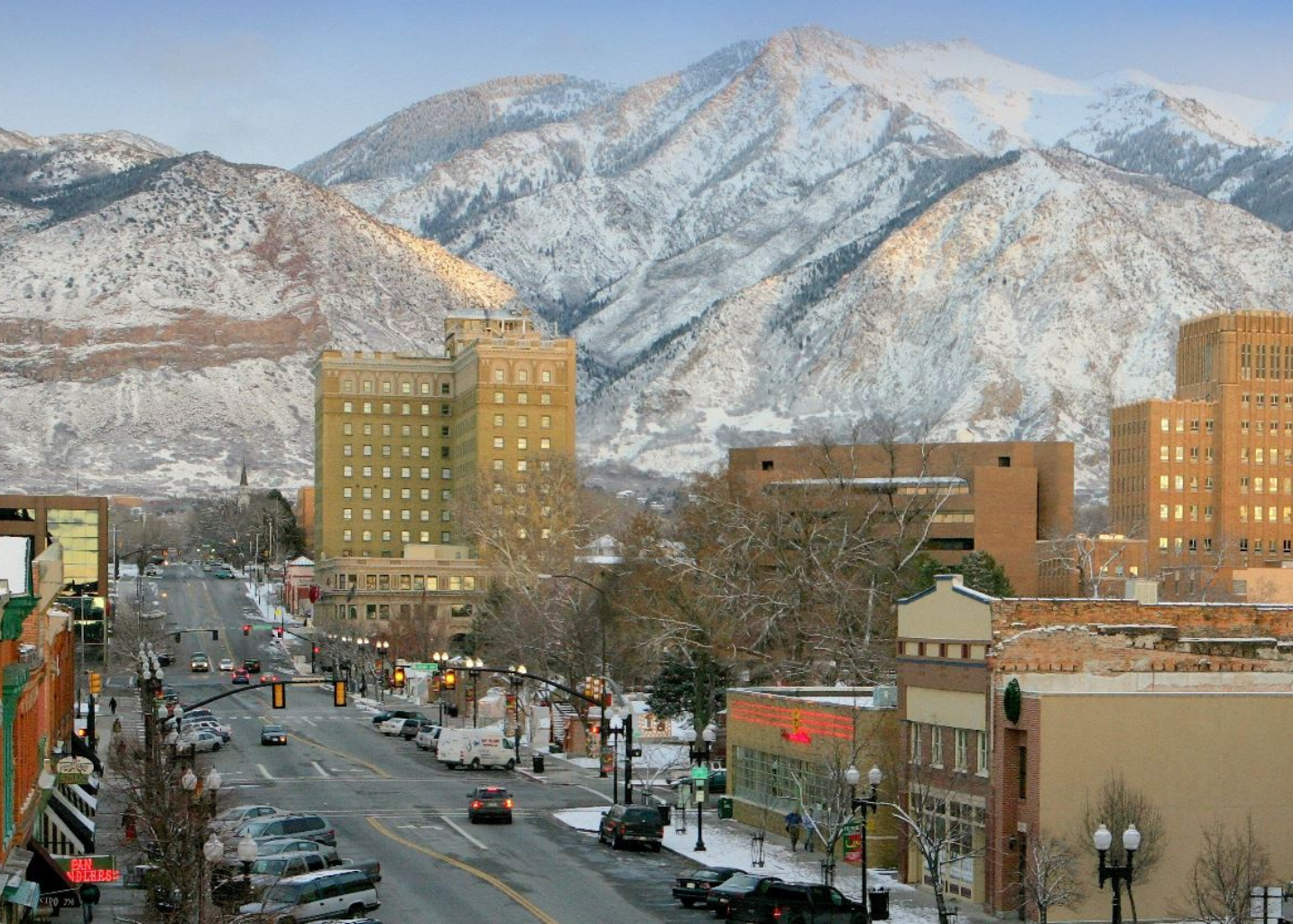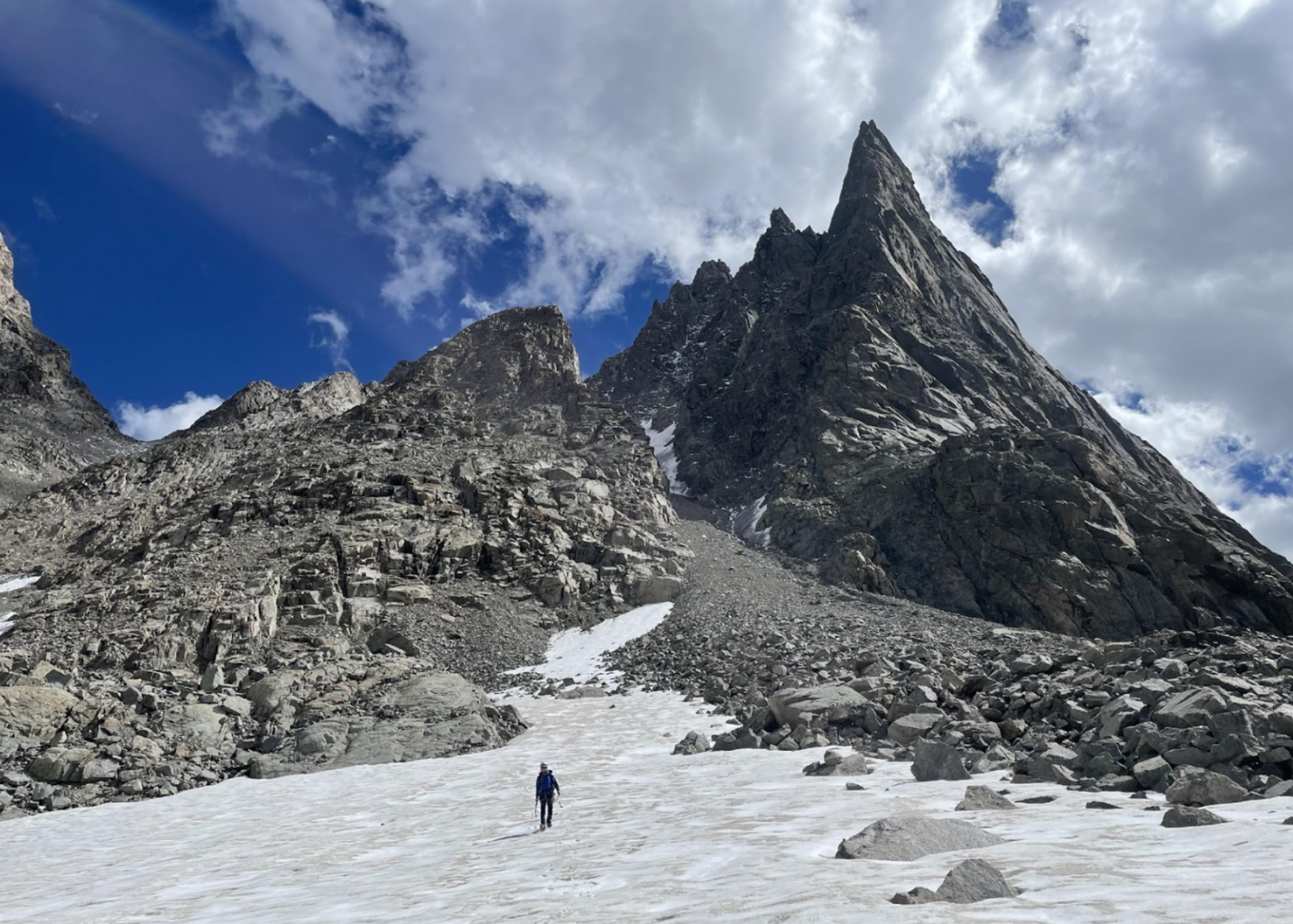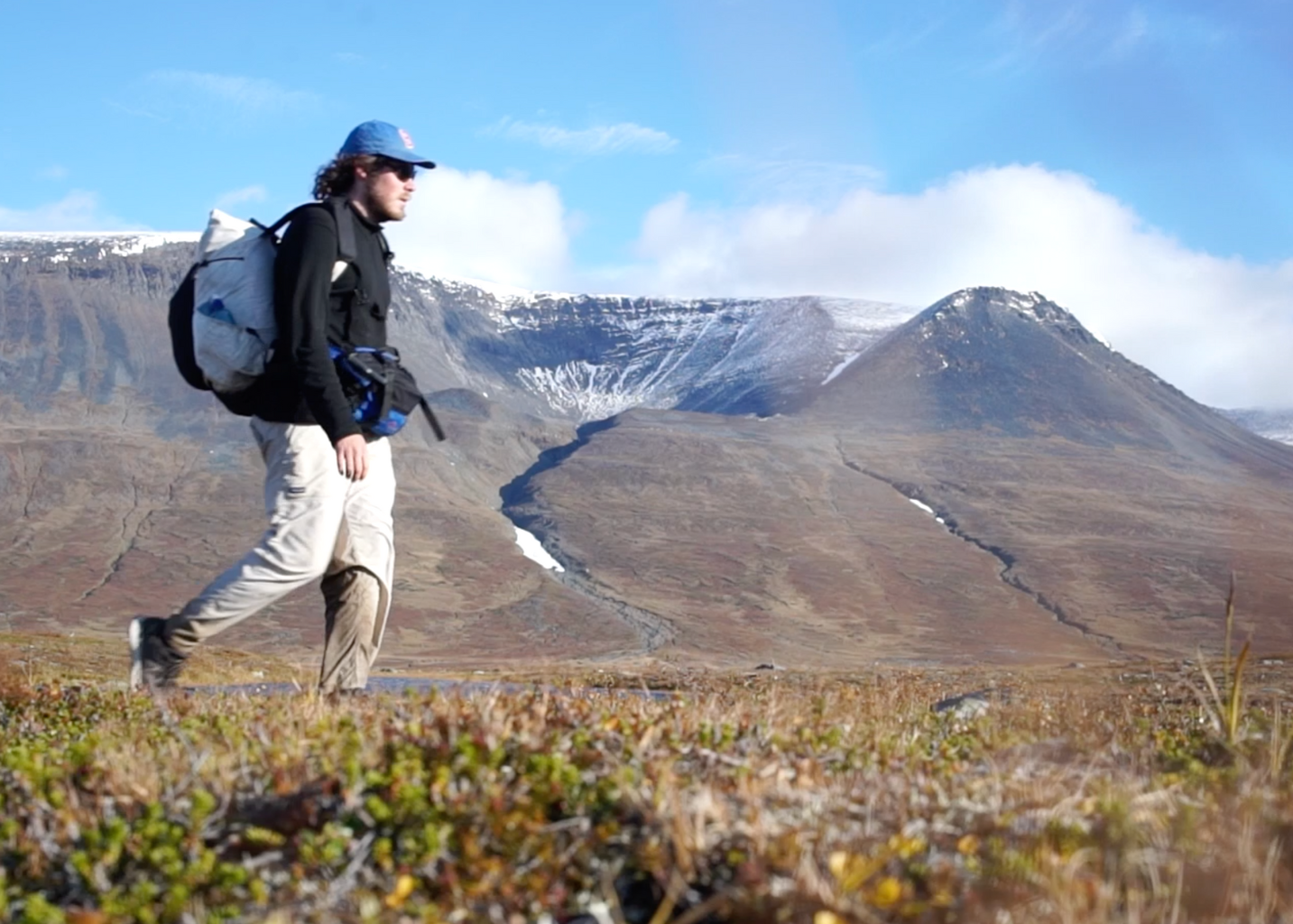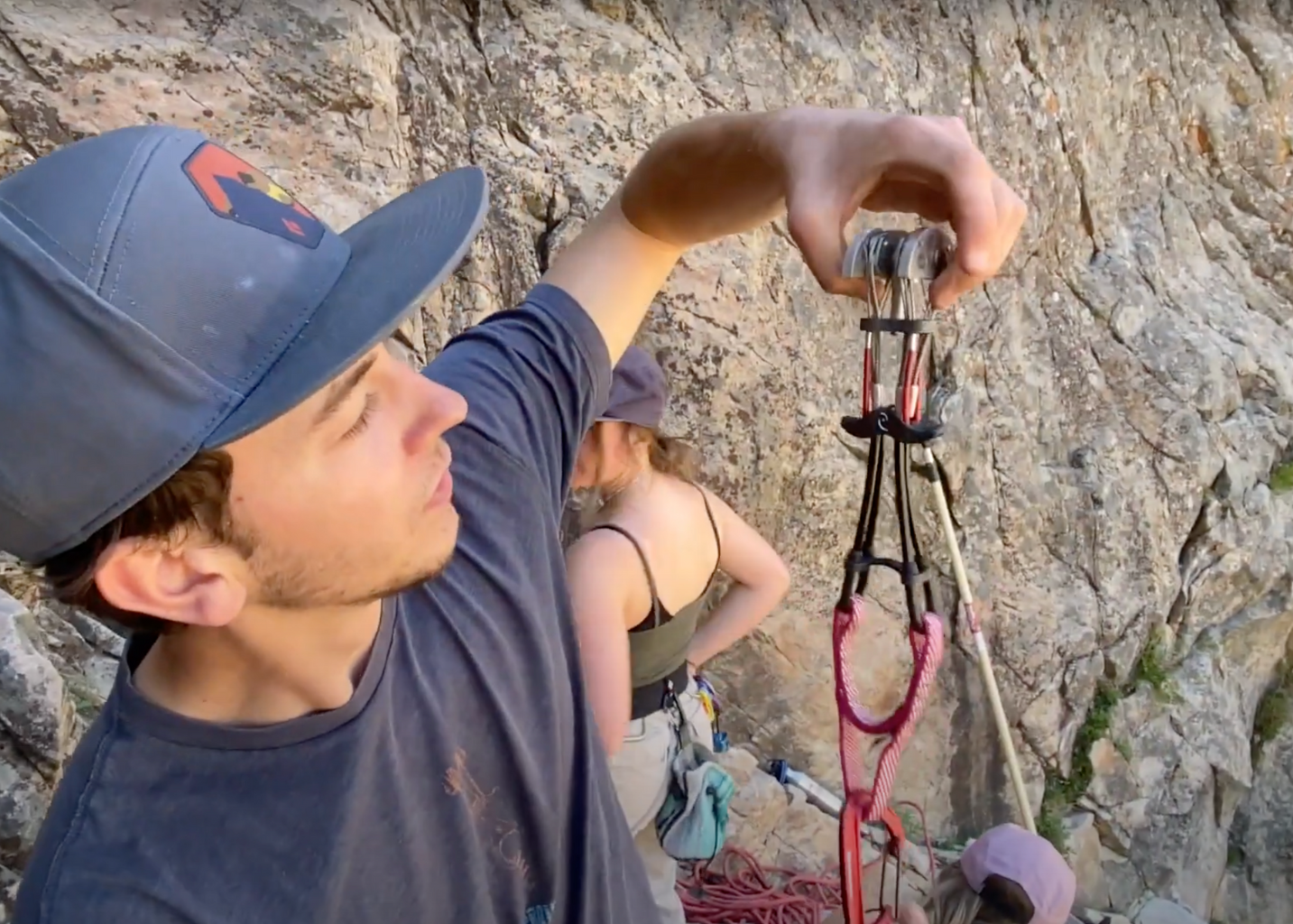Bringing Pride to local trails: Utah Rainbow Hikers
By Mekenna Malan | June 29, 2021
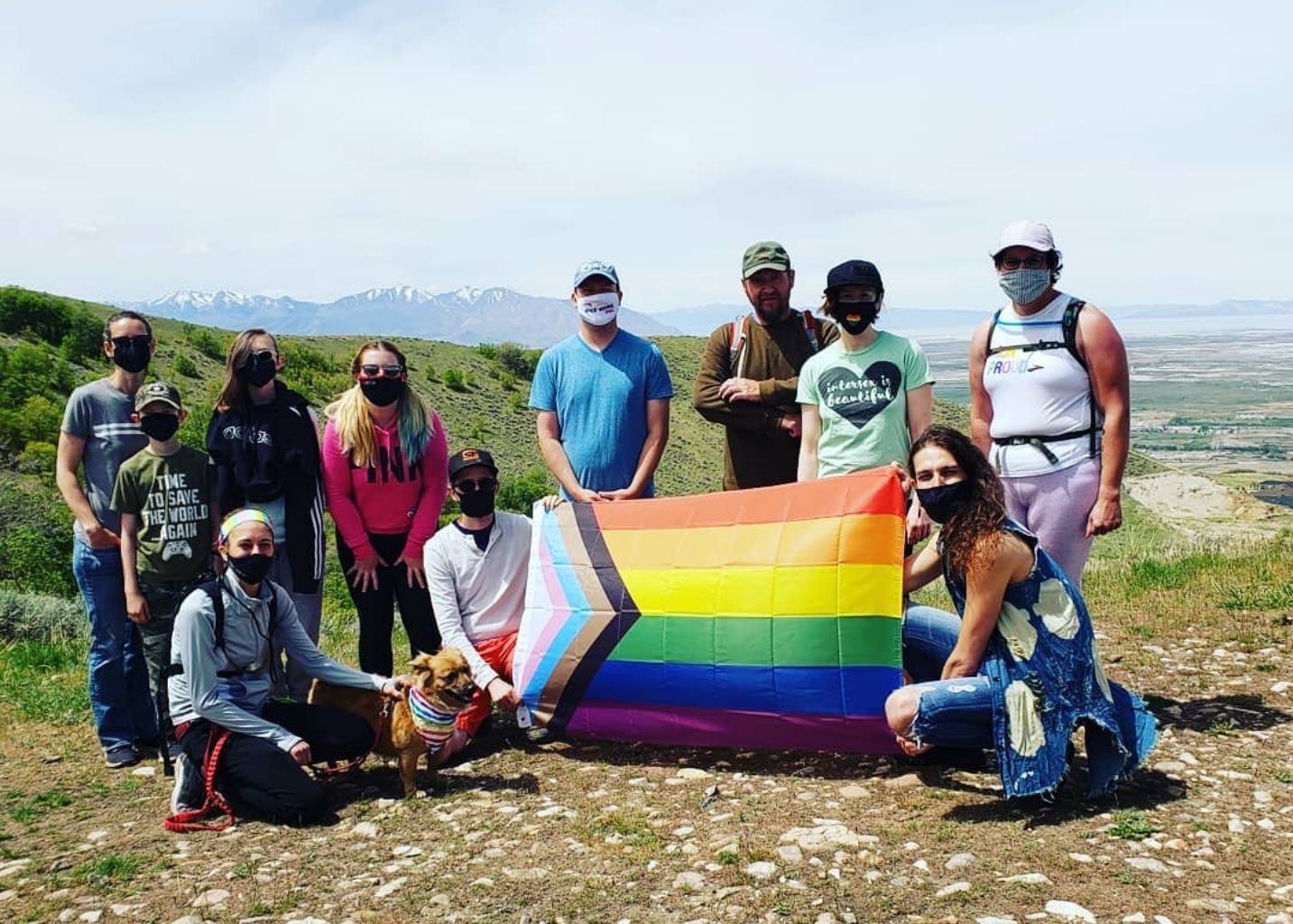
Ariel Malan, Brett Quade and Christopher Malan founded the LGBTQIA+ hiking group Utah Rainbow Hikers to foster inclusivity in the local outdoor community.
“The outdoors, historically, have been a privileged space,” Christopher Malan says. “Moving forward, I would love to see them as a right for all.”
Once monthly, Utah Rainbow Hikers meets at a local trailhead to get some fresh air, meet new friends and bring Pride outside. Hikes are announced on the group’s social media beforehand, and all LGBTQIA+ folks, allies and experience levels are welcome. “Many people who are LGBTQIA+ want to find other people who are like them but don't enjoy the traditional spaces that are often associated with being LGBTQIA+,” Brett says. “This group is an opportunity for everyone to find a community where they feel they belong.” No RSVP is required, and a carpool list has recently been incorporated into each month’s hiking meet-up to help increase accessibility for individuals who want to participate.
Just three months and three hikes after the group was founded, Utah Rainbow Hikers has harnessed hundreds of followers on Instagram and a whirlwind of support. “It’s been a surprise to us how well this has been received and how engaged people are,” Ariel says. “The comments I keep hearing at hikes are, ‘I’m so glad you’re doing this’ and ‘I’ve been wanting to get outside but haven’t felt safe until now.’”

The Utah Rainbow Hikers don’t just walk the walk - they’re committed to getting the community talking and advocating for real change. Ariel, Brett and Christopher, along with the Utah Pride Center and Desert Song, recently met with the Bureau of Land Management to discuss accessibility in the outdoors. “We have a long way to go so that LGBTQIA+ people feel safe accessing the outdoors in the same way our cisgender/heterosexual counterparts have historically,” Ariel says. Members of the LGBTQIA+ community are targeted and violently assaulted much more frequently than those who don't identify as LGBTQIA+, with BIPOC and transgender individuals at a particularly high risk for experiencing violence. A hurdle to accessibility and inclusion is rallying all members of the community to unite for change, Ariel says. “We’re experiencing it, but to prove this to outdoor companies and groups is another story.”

Until we change the culture to make the outdoors more safe for all, Christopher says, groups like Utah Rainbow Hikers are more of a necessity than many would like to admit. As a gender queer/nonbinary individual who enjoys bringing their feminine expression into the outdoors through clothing and personality, Christopher often feels pressure to “blend in” for their safety. They often find themself “questioning every part of the experience of being outdoors,” despite being raised in an outdoor-centric household and enjoying activities like trail running, climbing, skydiving, rollerblading and martial arts throughout their life. “I push through the thoughts of danger wondering if this will be my last time on the trails, or if I may take home a terrifying experience that may trigger me for the rest of my life,” they say. “I am reminded that the trails are not a safe space by the constant stories of assault to BIPOC, LGBTQIA+ and anyone that is not cis, white and male presenting.”

When asked what inclusivity in the outdoors would look like, Ariel, Brett and Christopher replied with an impactful list. Reducing and eliminating the cost barriers for parking, camping and national parks permits would help make the outdoors more accessible for all, as would the accountability of rangers and staff that are involved in the reporting process when targeted folks experience discrimination while recreating. Public lands also need to commit themselves to equity for the communities accessing these areas, they say, through acknowledging indigenous land, using gender-neutral and inclusive language on websites, and enforcing inclusive policies for LGBTQIA+ employees and visitors.
Lastly, easy access to restrooms with gender-free signage is a simple way to make an impact, as is providing access to clothing and gear that is non-gendered. “We hope to have conversations with retailers so they can see that creating this binary space is not just scary, limiting and dangerous to LGBTQIA+ people but that it also limits the chance to make and sell more useful products that are based on different body types, rather than just arbitrary gender stereotypes,” Christopher says. “These standards need to be rewritten so all gender identities and expressions can live full and healthy lives by accessing the spaces needed to gain this health.”

The Utah Rainbow Hikers would also like to remind the community that true allyship includes advocating for education and policies that protect and include the LGBTQIA+ community. “Never slap a rainbow on a message or a product and call it good,” Brett says. “Hollow messaging is oftentimes worse than ignorance. Educate yourself, educate your employees and work hard to treat everyone equally and fairly.”
What’s one easy way to be an ally on the trail? Smile and say hi, Christopher says. They hope Utah Rainbow Hikers will continue to serve as a space where LGBTQIA+ individuals feel they have a voice and a place they belong. “I honestly just feel lucky to know that there are so many individuals like us out here…I also just love being my full self—queer and colorful—with such a beautiful backdrop.”
To connect with Utah Rainbow Hikers and get updates on monthly hikes, follow the group on Instagram, Facebook and Twitter.
Other inclusive groups and resources, as provided by Utah Rainbow Hikers:
The Desert Song | Utah Pride Center | BIPOC at The Front | SLA Queer Climbers | Unlikely Hikers | Fat Girls Hiking | Women Who Explore Utah | Intersectional Environmentalist | Brown Girls Climb | Women Who Hike | Stonewall Sports SLC | Native Women's Wilderness | Nikki Smith | Pattiegonia
